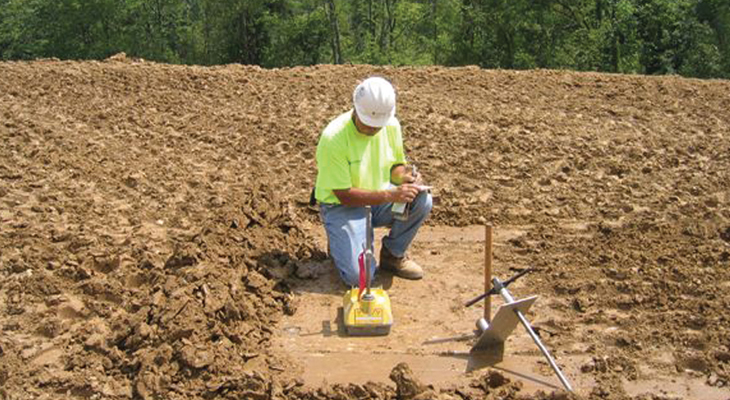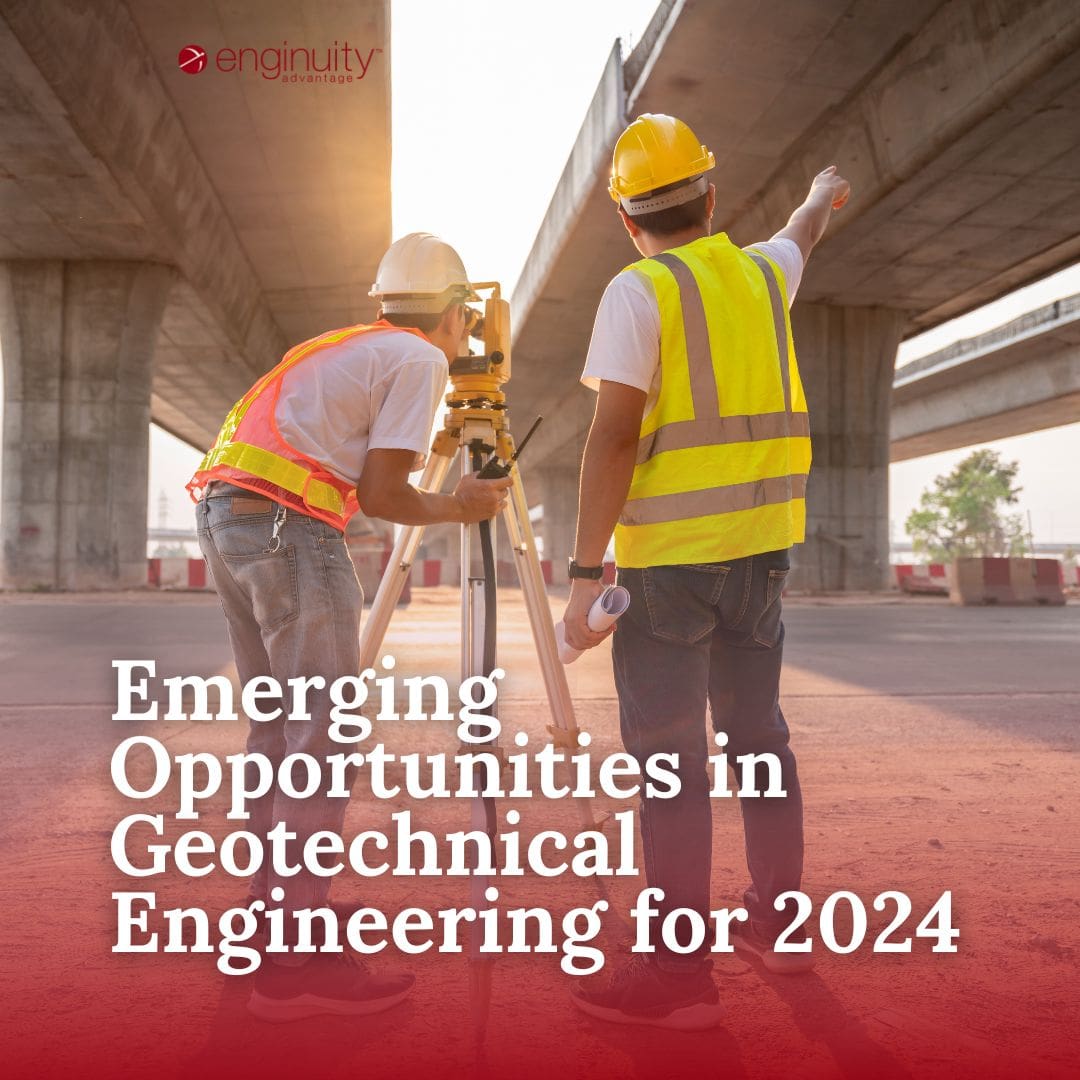Engineer of Record: What You Need to Understand About Their Duties and Impact
Engineer of Record: What You Need to Understand About Their Duties and Impact
Blog Article
The Interdisciplinary Approaches in the Geotechnical Sector: Connecting the Void Between Engineering, Geology, and Environmental Scientific Research for Ideal Project End Results
The assimilation of design, geology, and ecological science within the geotechnical market is not simply helpful; it is crucial for achieving optimum project end results. What methods might emerge to promote this essential cooperation and boost the efficiency of geotechnical techniques?
Importance of Interdisciplinary Partnership
The relevance of interdisciplinary partnership in the geotechnical industry can not be overstated. Effective geotechnical tasks need the integration of diverse experience from different areas, consisting of design, geology, and ecological scientific research. This collaboration ensures that all elements of a project are thought about, bring about thorough options that attend to intricate obstacles.
Interdisciplinary cooperation promotes technology by enabling experts to share understandings and methodologies that may not appear when operating in isolation (geo tech engineer). By leveraging the strengths of numerous disciplines, groups can determine potential dangers, optimize design procedures, and boost the sustainability of geotechnical jobs. Such collaboration promotes an all natural understanding of site-specific conditions, which is important for precise analysis and decision-making.
The intricacy of geotechnical jobs requires a collaborated strategy to analytical. Ultimately, interdisciplinary collaboration is vital for advancing best practices and attaining quality in the geotechnical industry.
Key Roles of Each Self-control
Cooperation amongst different techniques is not just useful; it is essential for the successful execution of geotechnical projects. Each technique-- design, geology, and environmental scientific research-- plays an unique yet interconnected function that adds to forecast efficacy and sustainability.
Geotechnical engineers are primarily liable for making foundations and making sure architectural honesty. They analyze soil and rock buildings to examine load-bearing capacities, offering important data for risk-free construction practices. Their experience allows the solution of ingenious solutions to complex obstacles.
.webp)
Ecological scientists assess the potential impacts of construction on environments and water resources. They conduct ecological assessments and establish mitigation methods to lessen negative results. By incorporating eco-friendly factors to consider, they guarantee compliance with guidelines and advertise sustainability throughout the job lifecycle.
Study of Effective Integration
Effective combination of geotechnical techniques can be exhibited with numerous study that highlight the performance of team effort in attending to complicated engineering difficulties. One remarkable example is the construction of the Hong Kong-- Zhuhai-- Macau Bridge, where a collective approach including geotechnical design, geology, and ecological scientific research was crucial. Designers and geologists operated in unison to assess the seabed conditions and maximize the foundation layout, making sure stability and decreasing ecological impact.
An additional impactful instance is the improvement of slope security in the San Francisco Bay Area, where an interdisciplinary group combined geotechnical evaluation with environmental analyses. By incorporating hydrological researches and geological surveys, the team successfully determined prospective landslide dangers and applied efficient mitigation actions, improving safety and sustainability.
Furthermore, the redevelopment of Brownfield websites typically requires a multidisciplinary approach. In one instance in Chicago, cooperation amongst geotechnical designers, ecological scientists, and urban organizers resulted in the successful removal of contaminated dirt, permitting the secure change of the website right into a community park. These case researches highlight that interdisciplinary cooperation not only addresses technological obstacles but additionally promotes cutting-edge remedies that benefit both areas and jobs.
Obstacles in Multidisciplinary Projects

In addition, collaborating timetables and operations amongst numerous groups can be troublesome, especially when each discipline has special project milestones and deliverables. This misalignment can cause hold-ups and boosted costs. The obstacle of source allocation additionally impends large; making certain that specific expertise is readily available at vital points requires careful preparation and foresight.
Last but not least, regulative compliance presents an additional substantial challenge. Each discipline may deal with different regulatory frameworks, and lining up find here these demands to fulfill project goals can be complicated and time-consuming. Attending to these challenges necessitates solid leadership and efficient interaction approaches to foster cooperation and make sure that multidisciplinary teams function cohesively in the direction of shared objectives.
Future Trends in Geotechnical Practices
As the geotechnical market develops, arising fads are reshaping techniques to resolve the challenges faced in multidisciplinary jobs - engineer of record. One substantial trend is the boosted integration of sophisticated innovations, such as fabricated intelligence and maker knowing, right into geotechnical evaluation and layout. These technologies enhance predictive modeling and danger evaluation, allowing engineers to make more educated decisions throughout the project lifecycle

Furthermore, the adoption of electronic doubles and real-time monitoring systems is becoming more common. These devices facilitate ongoing assessment of soil conditions and architectural efficiency, enabling for prompt interventions when issues occur.
Conclusion
In conclusion, the combination of design, geology, and ecological scientific research is vital for accomplishing optimum end results in the geotechnical market. Interdisciplinary cooperation cultivates innovation, enhances problem-solving capacities, and straightens technical demands with ecological sustainability. Successful study highlight the advantages of this technique, while acknowledging the difficulties faced in multidisciplinary projects. Looking ahead, embracing these joint practices will be vital for browsing future fads and progressing browse this site the field of geotechnical engineering.
The combination of engineering, geology, and environmental science within the geotechnical market is not merely beneficial; it is essential for accomplishing ideal task results. Effective geotechnical jobs need the combination of diverse know-how from different fields, consisting of engineering, geology, and ecological science.Navigating the intricacies of multidisciplinary projects in the geotechnical sector offers a number of substantial obstacles.As the geotechnical market develops, emerging patterns are improving methods to deal with the obstacles faced in multidisciplinary Recommended Site jobs. Geotechnical engineers are increasingly collaborating with environmental researchers to guarantee that jobs line up with sustainability objectives and conform with regulatory requirements.
Report this page